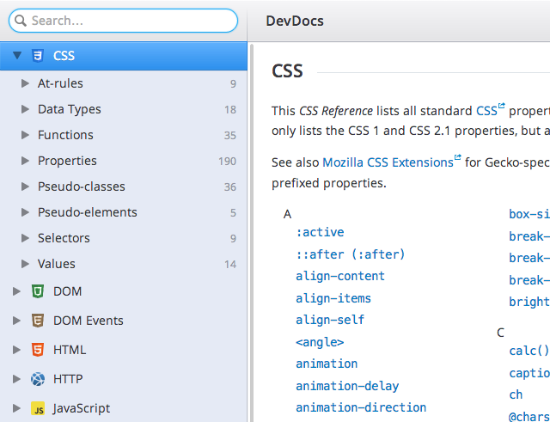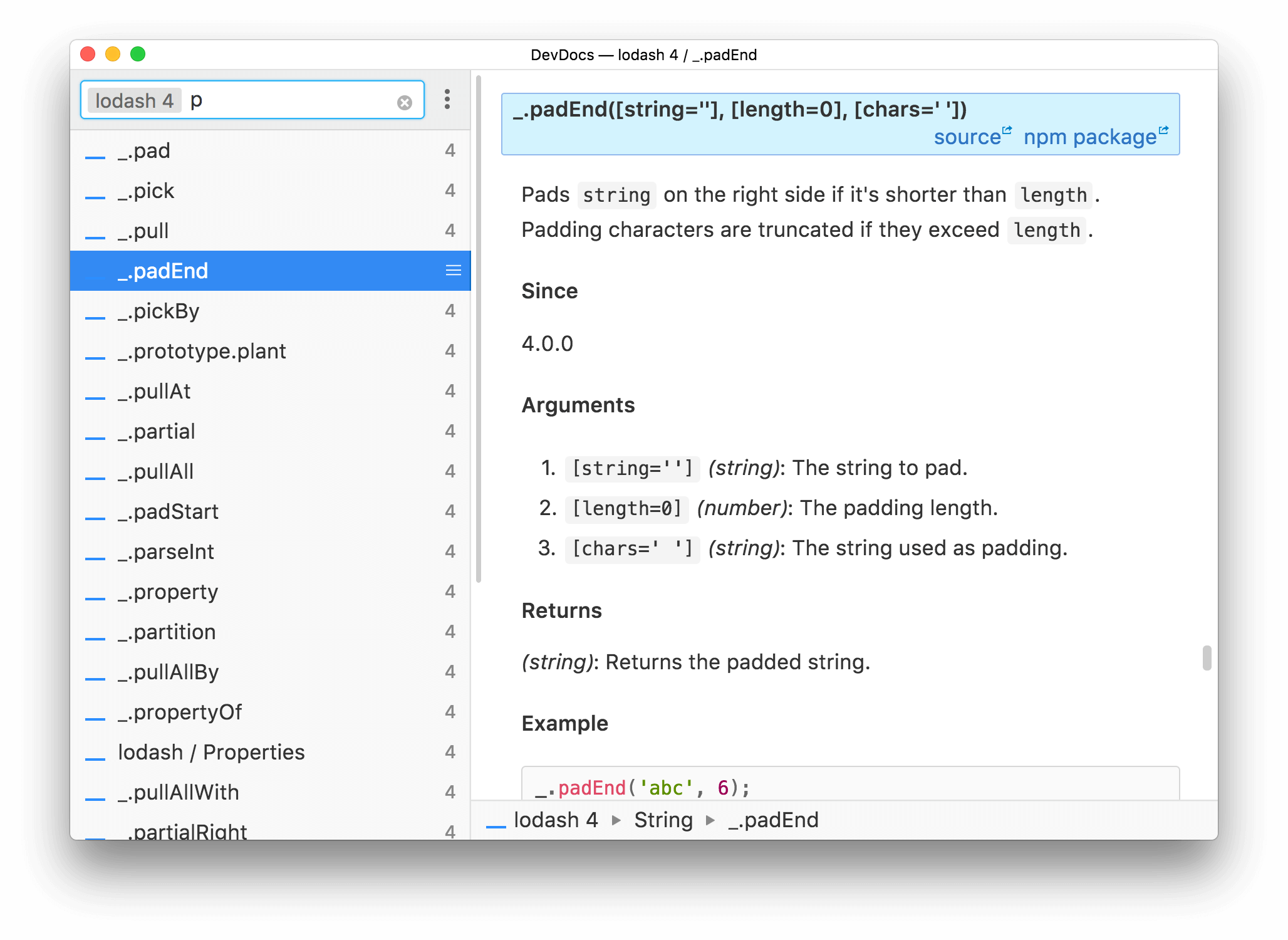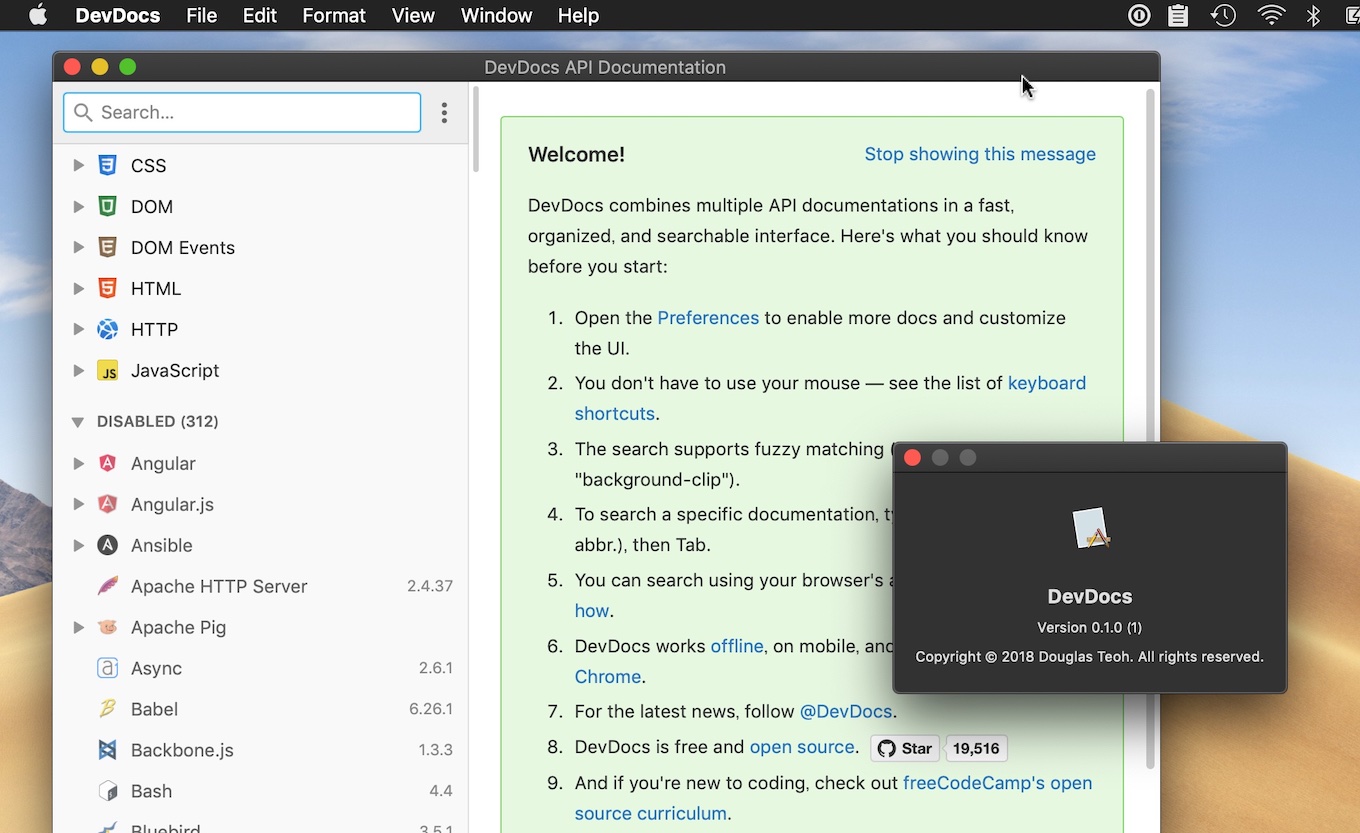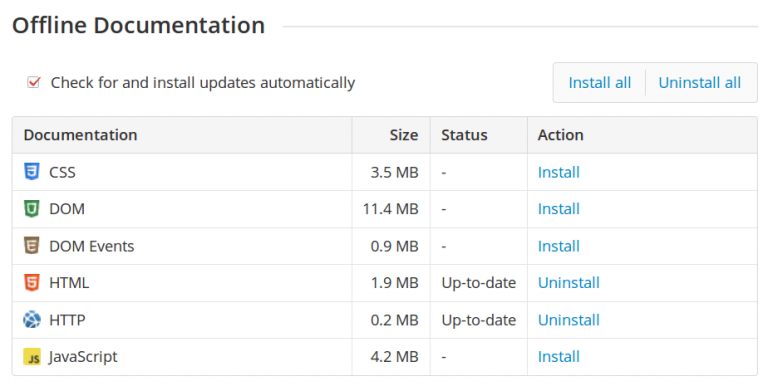

- #DEVDOCS DOWNLOAD UPDATE#
- #DEVDOCS DOWNLOAD CODE#
- #DEVDOCS DOWNLOAD OFFLINE#
- #DEVDOCS DOWNLOAD FREE#
- #DEVDOCS DOWNLOAD WINDOWS#
Made something cool? Feel free to open a PR to add a new row to this table! You might want to discover new projects via. If multiple versions of Ruby are installed on your system, commands must be run through bundle exec. To see all commands and options, run thor list from the project's root. More information about scrapers and filters is available in the docs folder.
#DEVDOCS DOWNLOAD UPDATE#
Because the index files are loaded separately by the app following the user's preferences, the scraper also creates a JSON manifest file containing information about the documentations currently available on the system (such as their name, version, update date, etc.).
#DEVDOCS DOWNLOAD OFFLINE#
The end result is a set of normalized HTML partials and two JSON files (index + offline data). Each scraper includes filters specific to itself, one of which is tasked with figuring out the pages' metadata. These modifications are applied via a set of filters using the HTML::Pipeline library.


Modifications made to each document include: They both make copies of HTML documents, recursively following links that match a set of rules and applying all sorts of modifications along the way, in addition to building an index of the files and their metadata. There are currently two kinds of scrapers: UrlScraper which downloads files via HTTP and FileScraper which reads them from the local filesystem. It's written in Ruby under the Docs module. The scraper is responsible for generating the documentation and index files (metadata) used by the app.
#DEVDOCS DOWNLOAD CODE#
This allows the code to take advantage of the latest DOM and HTML5 APIs and make developing DevDocs a lot more fun! Scraper

Many of the code's design decisions were driven by the fact that the app uses XHR to load content directly into the main frame. It relies on files generated by the scraper. The web app is all client-side JavaScript, written in CoffeeScript, and powered by a small Sinatra/ Sprockets application. Tutorials, guides and other content that don't meet this requirement are outside the scope of the project. Its backbone is metadata each piece of content is identified by a unique, "obvious" and short string. All our content is pulled from third-party sources and the project doesn't intend to compete with full-text search engines. Note: DevDocs is neither a programming guide nor a search engine. Reduce clutter by focusing on a specific category of content (API/reference) and indexing only the minimum useful to most developers.Reduce “context switch” by using a consistent typography and design across all documentations.Maintain a clean and readable user interface.Maximize the use of caching and other performance optimizations.Improve the quality, speed, and order of search results.Once you have these installed, run the following commands:ĭevDocs aims to make reading and searching reference documentation fast, easy and enjoyable.
#DEVDOCS DOWNLOAD WINDOWS#
It's up-to-date and works offline out-of-the-box.ĭevDocs is made of two pieces: a Ruby scraper that generates the documentation and metadata, and a JavaScript app powered by a small Sinatra app.ĭevDocs requires Ruby 3.2.1, libcurl, and a JavaScript runtime supported by ExecJS (included in OS X and Windows Node.js on Linux). Unless you wish to contribute to the project, we recommend using the hosted version at devdocs.io. Please reach out to the community on Discord if you would like to join the team! We are currently searching for maintainers DevDocs combines multiple developer documentations in a clean and organized web UI with instant search, offline support, mobile version, dark theme, keyboard shortcuts, and more.ĭevDocs was created by Thibaut Courouble and is operated by freeCodeCamp.


 0 kommentar(er)
0 kommentar(er)
